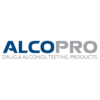Who is qualified to act as a SAP? § 40.281
To be permitted to act as a SAP in the DOT drug testing program, you must meet each of the requirements of this section:
(a) Credentials. You must have one of the following credentials:
(1) You are a licensed physician (Doctor of Medicine or Osteopathy);
(2) You are a licensed or certified social worker;
(3) You are a licensed or certified psychologist;
(4) You are a licensed or certified employee assistance professional; or
(5) You are a drug and alcohol counselor certified by the National Association of Alcoholism and Drug Abuse Counselors Certification Commission (NAADAC); or by the International Certification Reciprocity Consortium/Alcohol and Other Drug Abuse (ICRC); or by the National Board for Certified Counselors, Inc. and Affiliates/Master Addictions Counselor (NBCC).
(b) Basic knowledge. You must be knowledgeable in the following areas:
(1) You must be knowledgeable about and have clinical experience in the diagnosis and treatment of alcohol and controlled substances-related disorders.
(2) You must be knowledgeable about the SAP function as it relates to employer interests in safety-sensitive duties.
(3) You must be knowledgeable about this part, the DOT agency regulations applicable to the employers for whom you evaluate employees, and the DOT SAP Guidelines, and you keep current on any changes to these materials. These documents are available from ODAPC (Department of Transportation, 400 7th Street, SW., Room 10403, Washington DC, 20590 (202–366–3784), or on the ODAPC web site (http://www.dot.gov/ost/dapc).
(c) Qualification training. You must receive qualification training meeting the requirements of this paragraph (c).
(1) Qualification training must provide instruction on the following subjects:
(i) Background, rationale, and coverage of the Department’s drug and alcohol testing program;
(ii) 49 CFR Part 40 and DOT agency drug and alcohol testing rules;
(iii) Key DOT drug testing requirements, including collections, laboratory testing, MRO review, and roblems in drug testing;
(iv) Key DOT alcohol testing requirements, including the testing process, the role of BATs and STTs, and problems in alcohol tests;
(v) SAP qualifications and prohibitions;
(vi) The role of the SAP in the return-to-duty process, including the initial employee evaluation, referrals for education and/or treatment, the follow-up evaluation, continuing treatment recommendations, and the follow-up testing plan;
(vii) SAP consultation and communication with employers, MROs, and treatment providers;
(viii) Reporting and recordkeeping requirements;
(ix) Issues that SAPs confront in carrying out their duties under the program.
(2) Following your completion of qualification training under paragraph (c)(1) of this section, you must satisfactorily complete an examination administered by a nationally-recognized professional or training organization. The examination must comprehensively cover all the elements of qualification training listed in paragraph (c)(1) of this section.
(3) The following is the schedule for qualification training you must meet:
(i) If you became a SAP before August 1, 2001, you must meet the qualification training requirement no later than December 31, 2003.
(ii) If you become a SAP between August 1, 2001, and December 31, 2003, you must meet the qualification training requirement no later than December 31, 2003.
(iii) If you become a SAP on or after January 1, 2004, you must meet the qualification training requirement before you begin to perform SAP functions.
(d) Continuing education. During each three-year period from the date on which you satisfactorily complete the examination under paragraph (c)(2) of this section, you must complete continuing education consisting of at least 12 professional development hours (e.g., CEUs) relevant to performing SAP functions.
(1) This continuing education must include material concerning new technologies, interpretations, recent guidance, rule changes, and other information about developments in SAP practice, pertaining to the DOT program, since the time you met the qualification training requirements of this section.
(2) Your continuing education activities must include documentable assessment tools to assist you in determining whether you have adequately learned the material.
(e) Documentation. You must maintain documentation showing that you currently meet all requirements of this section. You must provide this documentation on request to DOT agency representatives and to employers and C/TPAs who are using or contemplating using your services.
[65 FR 79526, Dec. 19, 2000, as amended at 69 FR 3022, Jan. 22, 2004]
